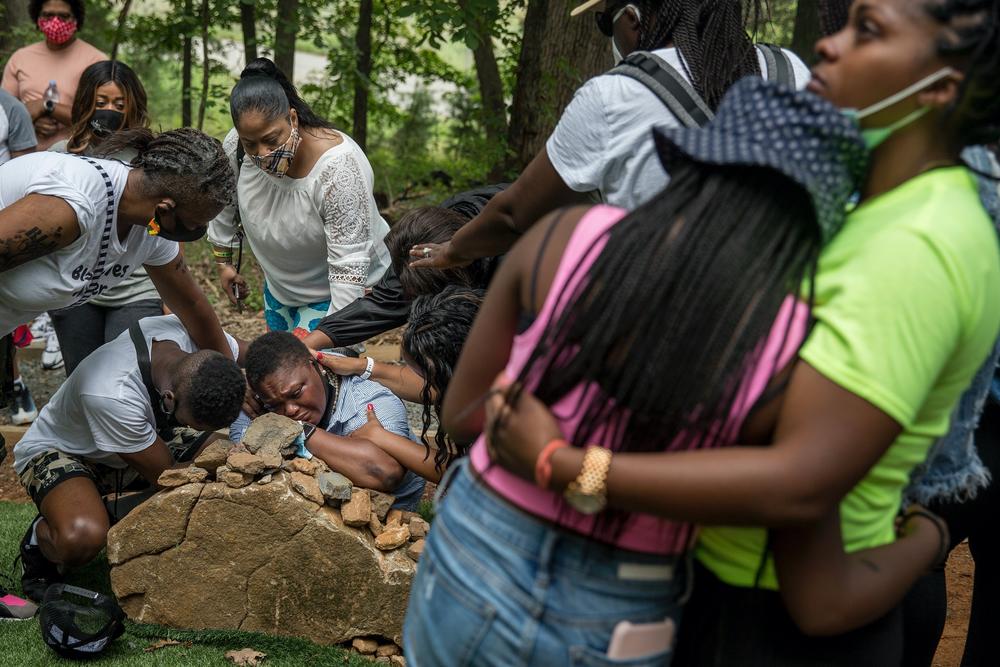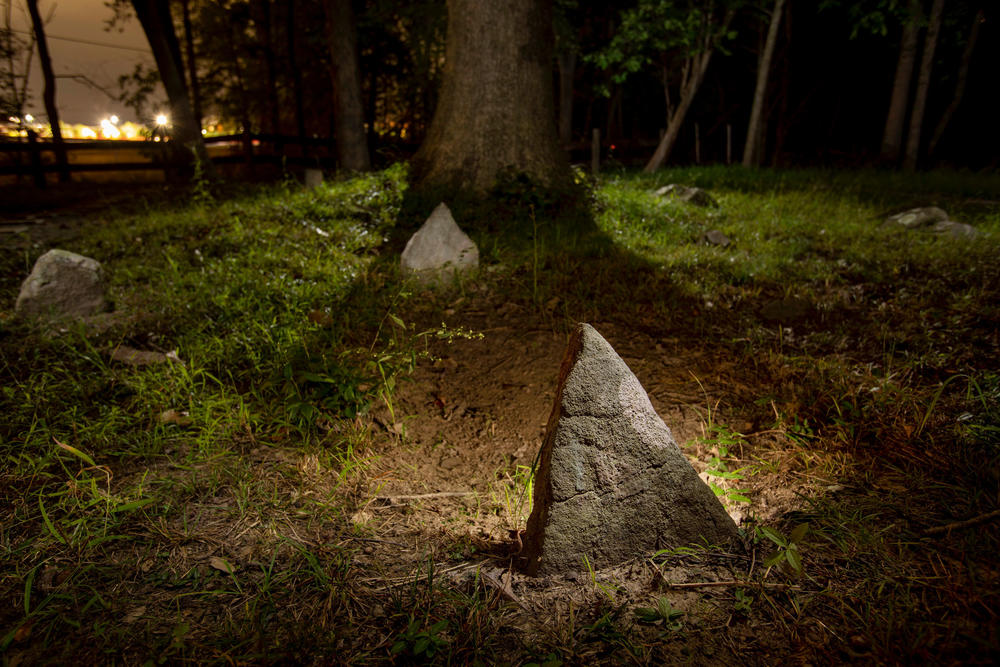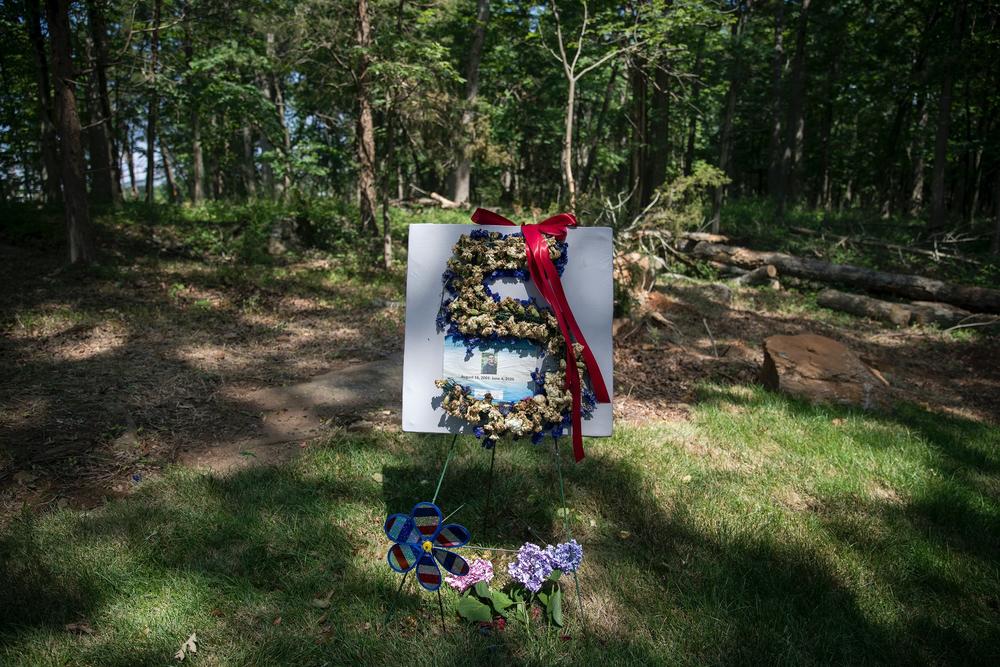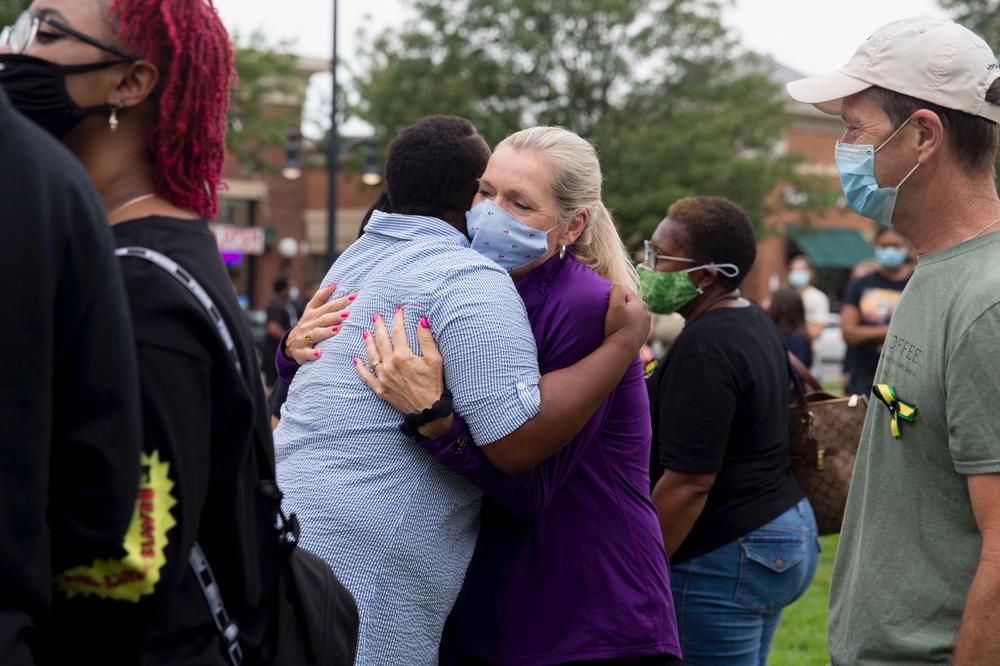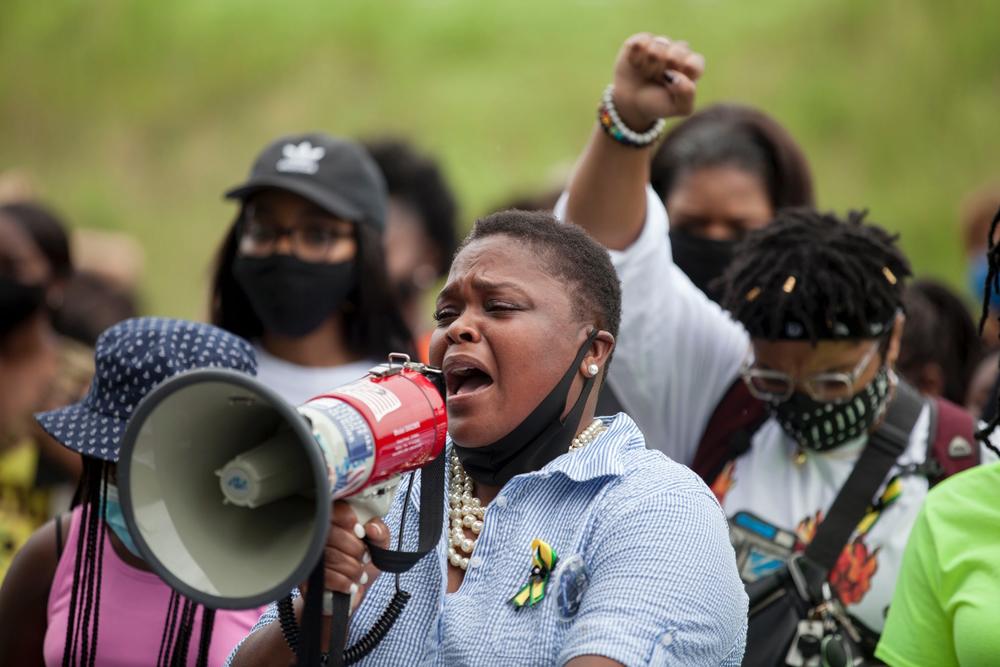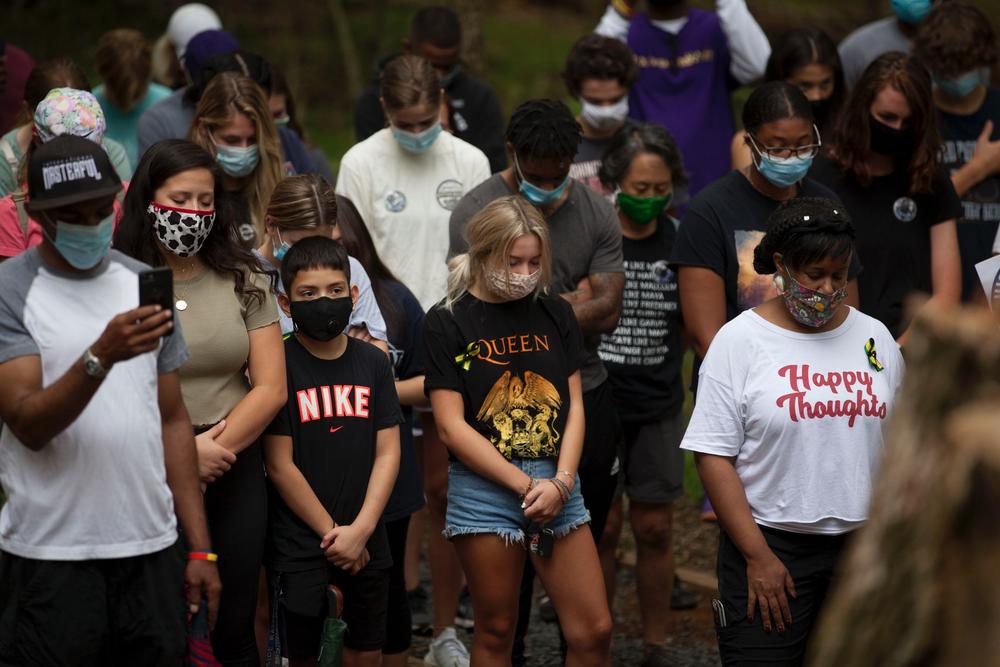Section Branding
Header Content
A Pastor Rescues A Cemetery For Enslaved People, Then Buries Her Son In It
Primary Content
Five years ago, Pastor Michelle Thomas was looking for a place to build a church in Loudoun County, which borders the Potomac River in northern Virginia.
She had no idea her search would lead her to a neglected burial ground for enslaved people, nor that her 16-year-old son would die and become, as she put it, "the first African American person who was born free to be buried in this cemetery."
At the time, Thomas was just looking to build a church for her congregation, Holy & Whole Life Changing Ministries International, a non-denominational church in Landsdowne, Va.
She knew several plantations had been located in the area, and she wanted to be sure she would not inadvertently build on the graves of the enslaved. Searching in county records, she found a listing that caught her eye: Slave Cemetery — Belmont Plantation.
"I saw it on a cemetery index, and so I just literally saw the points on a plot and I just went through the woods to find it," she said.
A forgotten cemetery is restored
Thomas found unmarked rocks in the ground, at the ends of long, narrow depressions in the soil. She persuaded the Toll Brothers real estate developers who owned the land to donate it. She worked with Boy Scout volunteers to pave trails into the forest. It bothered her that the county knew about this cemetery since at least the 1850s.
"All that paperwork existed. We just had no one that was interested or demanding that this history be told," she said.
Thomas's restoration effort is part of a increasing interest in African American sites that has accelerated in the wake of the death of George Floyd, says Elizabeth Kostelny, CEO of the Richmond-based Preservation Virginia, a nonprofit historic preservaton group founded in 1889. Kostelny says she recruited Thomas to speak on an upcoming panel because her approach offered a possible model for others.
"We felt that Pastor Michelle's advocacy, the way she organized her work, the way she acquired the control of the property was something that many people could benefit from hearing," Kostelny said.
Then, this summer, the historical project became tragically personal for Thomas. On June 4, her son was swimming with friends in a tributary of the Potomac River when he drowned. The decision to bury him in the graveyard she had restored was simple, she says.
"Let's bury him in the place that I give my best care to," she said.
"It's very rare to hear of someone burying their loved one in an old, underserved cemetery," said Brent Leggs, executive director of the African American Cultural Heritage Action Fund at the National Trust for Historic Preservation.
"It's the reclaiming of history and space, and the way communities can ensure that Black cemeteries are cared for and respected in perpetuity," he wrote in an email.
Fitz's grave has since become a pilgrimage site for family and neighbors, many of whom have questions about the circumstances of his death.
"Fitz was a strong athlete, young kid, swimming all his life," said Phil Thompson, former president of the Loudoun NAACP and an attorney who advised Thomas following the drowning. "I live in that neighborhood. The creek was maybe 20-30 yards. It shouldn't have been a tough swim."
A 38-minute wait for rescue services
Fitz's death led to an ongoing investigation by Loudoun County Sheriff's Office and it triggered a cascade of reforms in the local rescue department, which has come under scrutiny because of the response time to the drowning.
Fitz's friends called 911, but emergency crews took nearly 40 minutes to reach the scene. An incident review by authorities in both Virginia and Maryland found that even though Fitz was swimming in Virginia, cell towers routed calls to the Maryland side of the Potomac, leading to a time-consuming ping pong of call transfers. Ultimately, neighbors helped Fitz's friends find his body and performed CPR as they waited for help, but he did not survive.
Loudoun County Fire and Rescue Chief Keith Johnson says many people took to swimming in the Potomac River system this summer because public pools were closed due to the pandemic, and he says strong currents can easily overwhelm swimmers.
The incident included several recommendations for changes, including implementing new software to pinpoint the location of emergency callers, mapping the river to make it easier for callers to explain where they are, and training dispatchers to listen better.
"Obviously, it's a tragic event. And I believe we have done everything we can do to make the changes," Johnson said.
Thomas says those changes should have been implemented long before her son went swimming. Now she says she wants a say in the oversight of the changes. She also seeks compensation for what she believes is wrongful death.
A rallying point and a sanctuary
Thomas's demands have found a receptive audience in Loudoun County, where the killing of George Floyd in Minneapolis drew crowds onto the streets. In July, following public pressure, the Daughters of the Confederacy removed a monument that stood outside the county courthouse for more than a century.
On what would have been Fitz's 17th birthday weekend, about 200 people joined Thomas for a rally in her son's memory. They framed his death as part of the call for a reckoning on race, shouting:
"What do we want?"
"Justice!"
"Justice for who?"
"Fitz!"
In the old cemetery, Thomas has counted 44 graves, but she believes there are more. She says a drainage pond dug on the grounds in the 1950s cut into some graves, and some of that dirt was spread on a highway named for the segregationist Harry Byrd. She hopes to launch an archaeological dig to unearth more remains, although she may never get a full count.
As she stood at her son's grave, Thomas held up a megaphone, and urged the crowd to see her son's death — and his grave — as a call to action.
"Fitz's Life Matters. With an S. It still matters. And we're going to fight to change laws and regulations and policy until all of us are protected," she said.
She asked for a moment of silence, then crouched down and leaned her arms on his tombstone. It sits removed from the older graves, under a clearing in the trees, covered in small stones left behind by visitors.
Then the pastor wept. She had rescued the cemetery from its long neglect, but no one had saved her son.
Copyright 2020 WAMU 88.5. To see more, visit WAMU 88.5.
